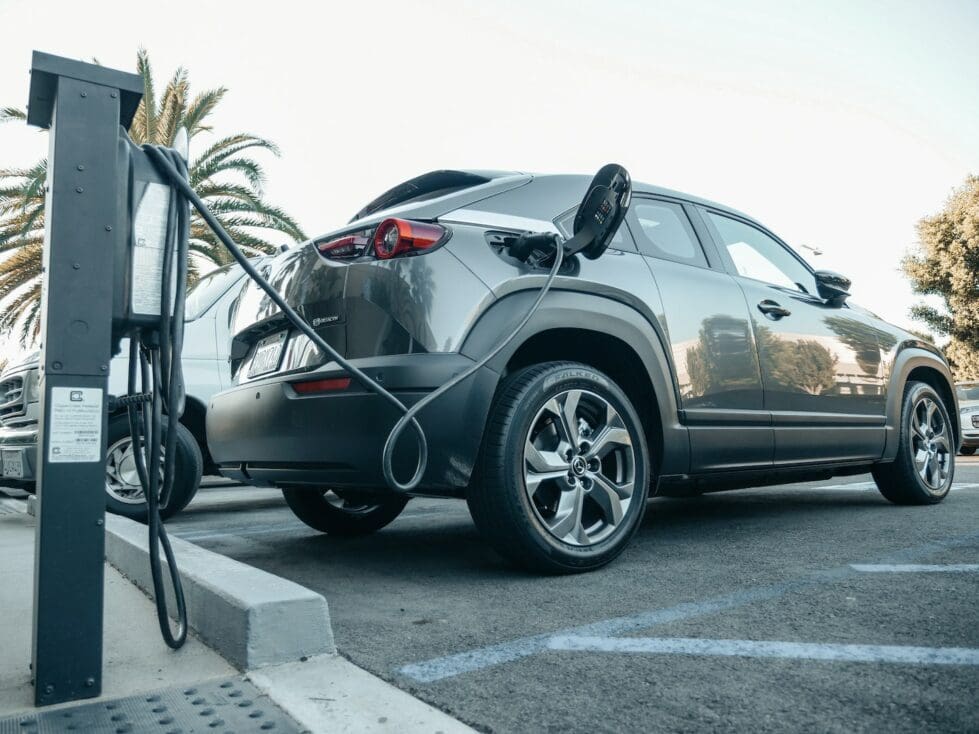

Delaware is developing plans to increase the number of charging stations for electric vehicles. (Kindel Media photo from Pexels)
Delaware is developing plans to increase the number of stations to charge electric vehicles, installed by private entities and partly subsidized with $15 million in federal funding.
Breanne Preisen, with the Delaware Department of Natural Resources and Environmental Control Division of Climate, Coastal and Energy, said the funding will cover 80% of the cost, with station owners covering the remaining 20%.
According to the federal Alternative Fuel Data Center, there are 145 charging stations in Delaware, the ninth-lowest in the country, with the least in Alaska at 59.
Prison hopes more charging stations will incentivize more people to buy electric vehicles and reduce what’s called range anxiety – that drivers don’t have enough charge to get to their destination.
“We put the charging stations there. People are going to get more Evs. More EVs means more charging. It’s a constant back and forth,” Prison said.
“The idea is to get more electric vehicles on the road from an air quality standpoint. To get more zero emission vehicles on the road, and to do that, if we don’t have the infrastructure to support that.”
RELATED: Caucus grills DNREC chief on EV rules
The federal funds come from the November 2021 passage of the Infrastructure Bill. They stipulate that charging ports be compatible with any electric vehicle (Tesla is notorious for Tesla-only stations), offer fast charging and be on important routes, such as Route 113, Route 13, Route 1 and Interstate 95.
Charging stations have three levels. Level 1 chargers take about an hour to charge for each five miles of range in a car’s battery. Level 2 chargers take about an hour to charge for each 25 miles of range. Level 3 chargers (also called fast chargers) take about an hour to charge for each 100 to 200 miles of range.
Fast charging is usually at stations along major highways. Level 2 chargers are placed in community settings like parks or libraries. Level 1 chargers work from regular house plugs, although Level 2 chargers can be fitted into houses.
Preisen said DNREC would send out requests for proposals in the coming months for companies looking to create more electric vehicle charging stations. The National Electric Vehicle Infrastructure Plan that the state released at the beginning of year said proposals were due in March.
Wilmington, NCCo on charging stations
John Rago, the deputy chief of staff with the mayor of Wilmington, said that the city has been working with a company called Energetics to develop plans.
Brian Boyle, a senior policy director with New Castle County, said the county has bought 13 electric vehicles, installed 24 Level 2 charging stations and received a $500,000 grant to buy more vehicles and charging stations. Sites with the charging stations include the Government Center, 87 Reads Way, New Castle Corporate Commons; the Conner Building, 187A Old Churchmans Road; Brandywine Library, 1300 Foulk Road, Brandywine Hundred; and Bear Library, 101 Governors Place, Bear.
RELATED: New Castle County requires new homes to be EV-charger ready
Preisen helps administer the state’s rebate program, launched in 2015, for installing Level 2 charging stations. It has grown from about one application each month to three. But some businesses are still hesitant.
“Some property owners don’t want to pay,” Preisen said. “We only rebate on the cost of the station. We don’t actually rebate on the cost for the installation, which is where a lot of the cost comes in. So if they have to upgrade their electrical panel, or if they have to upgrade the electricity coming into the property itself, the’’re on the hook for that. And that could be anywhere from $5,000 … to $15,000.”
Share this Post



